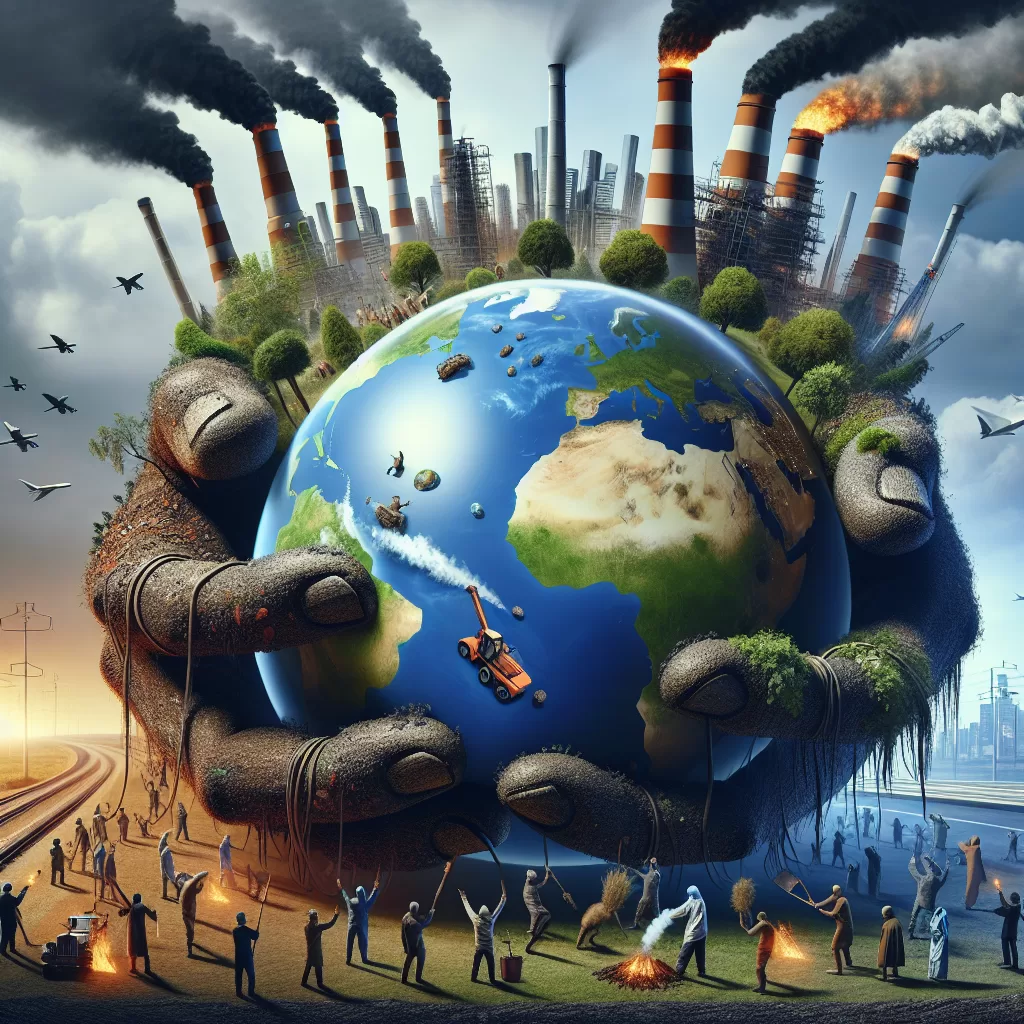The Climate Crisis: Resisting the Billionaire Class's Grip
The climate crisis poses an existential threat to life on Earth, fueled by the relentless burning of fossil fuels. While the facts are indisputable – irreversible planetary overheating jeopardizes all forms of life – the path forward demands a fundamental shift in power dynamics. Oil and gas executives, driven by greed, have systematically lied and obstructed the crucial transition to clean energy, perpetuating a system that pumps wealth from the poor to the rich.
Peter Kalmus, a climate scientist and author of “Being the Change: Live Well and Spark a Climate Revolution,” underscores the urgency of the situation. His profound love for the Earth compels him to confront the climate crisis head-on, recognizing it as a symptom of a larger issue – extractive colonial capitalism, or “billionairism.”
This extractive economic model has given rise to a multitude of societal crises, from healthcare and housing to systemic inequalities like racism and patriarchy. The concentration of wealth and power in the hands of a few billionaires perpetuates a vicious cycle of exploitation and suffering.
H2: Challenging Billionaire Hegemony for Environmental Justice
To truly address the climate emergency, we must challenge the dominance of the billionaire class and dismantle the systems that enable their unchecked accumulation of wealth and influence. This requires a collective effort to redistribute power and resources, empowering communities and prioritizing sustainable practices.
H3: Policy Reforms for a Just Transition
Enacting robust environmental policies that hold corporations accountable and promote renewable energy is crucial. Governments must phase out fossil fuel subsidies, impose stringent emissions regulations, and invest in clean technologies. Additionally, implementing progressive taxation and strengthening labor rights can help rebalance economic disparities.
H4: Grassroots Movements and Collective Action
Alongside policy reforms, grassroots movements and collective action play a vital role in challenging the status quo. By raising awareness, organizing protests, and advocating for systemic change, communities can exert pressure on decision-makers and corporations, catalyzing a just transition to a sustainable future.
As Kalmus poignantly states, the climate crisis is not merely an environmental issue but a symptom of a deeper societal malady. Resisting the grip of the billionaire class and dismantling extractive capitalism is a necessary step towards preserving a habitable planet for generations to come. The time for action is now, and it will require a collective effort to dismantle the systems that prioritize profits over planetary well-being.

